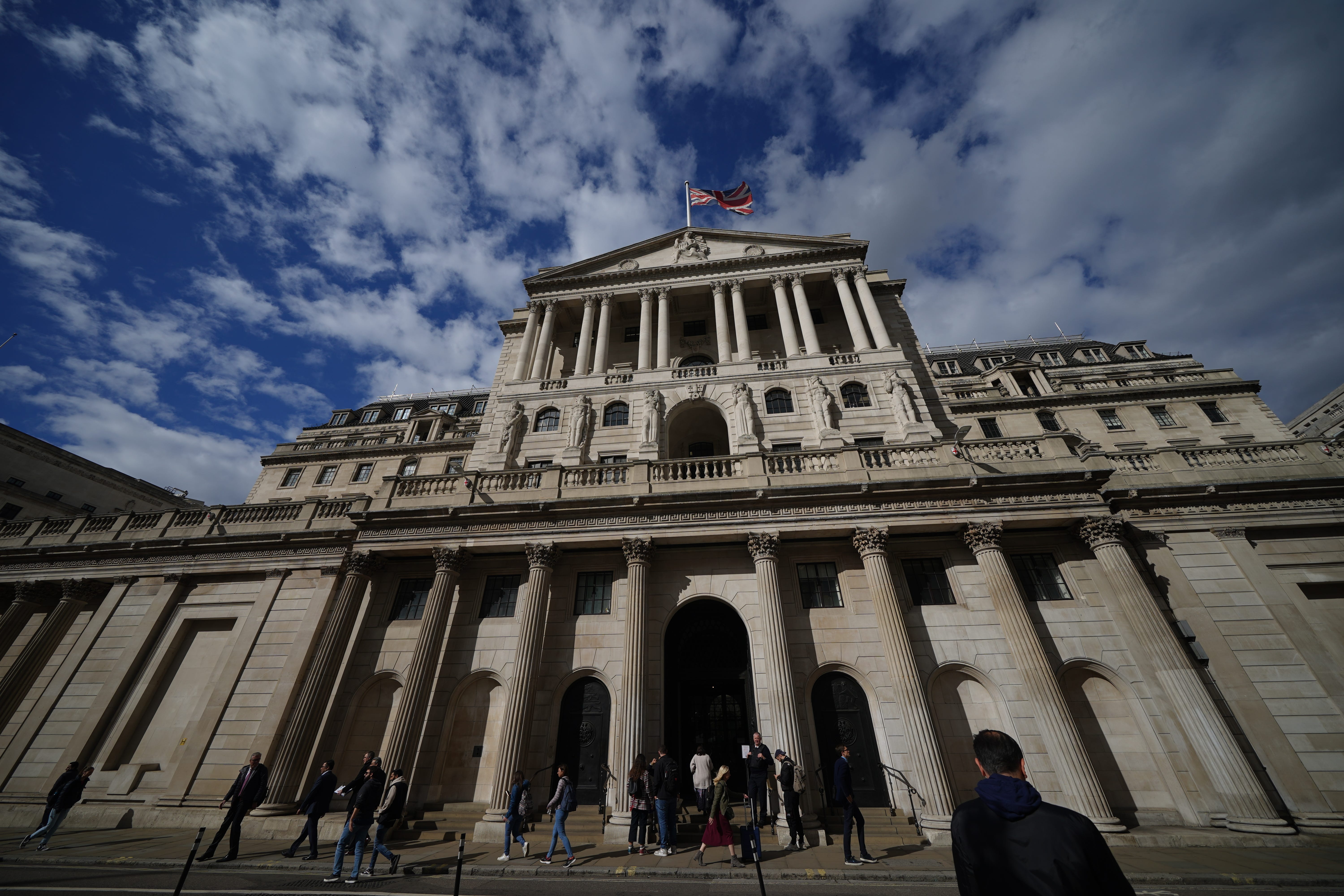Bank of England set to raise interest rates again as high inflation sticks
Economists agree that the Bank is likely to raise interest rates on Thursday, and that more hikes are on the horizon.

Your support helps us to tell the story
From reproductive rights to climate change to Big Tech, The Independent is on the ground when the story is developing. Whether it's investigating the financials of Elon Musk's pro-Trump PAC or producing our latest documentary, 'The A Word', which shines a light on the American women fighting for reproductive rights, we know how important it is to parse out the facts from the messaging.
At such a critical moment in US history, we need reporters on the ground. Your donation allows us to keep sending journalists to speak to both sides of the story.
The Independent is trusted by Americans across the entire political spectrum. And unlike many other quality news outlets, we choose not to lock Americans out of our reporting and analysis with paywalls. We believe quality journalism should be available to everyone, paid for by those who can afford it.
Your support makes all the difference.The Bank of England is poised to raise interest rates for the 13th time in a row after disappointing inflation figures showed price rises have not eased.
The UK’s Consumer Prices Index (CPI) was unchanged in May at a rate of 8.7%, according to the Office for National Statistics.
It came in above analysts’ expectations for the fourth month in a row, and indicated that inflation has remained persistent despite the Bank’s efforts to bring it down to the 2% target.
Economists agree that the Bank’s Monetary Policy Committee (MPC) is likely to raise interest rates on Thursday, from the current rate of 4.5%, and that more hikes are on the horizon.
Financial markets are expecting interest rates to rise by 0.25 percentage points to 4.75%. But there is a 40% chance that the rate could be pushed up even higher, by 0.5 percentage points to 5%.
With price momentum continually running above expectations alongside strong wages data, the Bank has no choice but to continue on a path of raising interest rates several more times
“Settling on the larger of the two risks adding fuel to the fire for rate expectations, a message the MPC will think long and hard about given the impact this would have for what is now termed the ‘mortgage time bomb’ for households and landlords that refinance borrowing,” said Sandra Horsfield, an economist for Investec Economics.
It comes as concerns have mounted over the mortgage market, with the average two-year fixed residential mortgage rate surpassing 6%, according to data from Moneyfactscompare.co.uk.
Moreover, expectations of where rates will peak have surged in recent weeks, with markets now anticipating a high of 6% by early next year. It would mean rates hit the highest level in more than two decades.
Chancellor Jeremy Hunt said he has spoken to consumer champion Martin Lewis, who on Tuesday said that a mortgage ticking time bomb is now “exploding”, ahead of meeting with Britain’s major lenders on Friday.
Banks have also come under fire from a group of MPs on the Treasury Committee for not raising savings rates as much as borrowing costs.
However, the Bank of England has said it will continue to raise interest rates as long as it sees signs of inflationary pressure.
Economists have said that important indicators of persistent inflation, namely core inflation, which strips out the price of energy, food, alcohol and tobacco, and wage growth, have remained elevated, which is likely to worry MPC policymakers.
Core CPI rose to 7.1% in May from 6.8% in April, the ONS said, and is often more in focus for the Bank when it sets interest rates.
Rob Morgan, chief investment analyst at Charles Stanley, said: “Getting the inflation genie back into the bottle is proving troublesome for the Bank of England.
“With price momentum continually running above expectations alongside strong wages data, the Bank has no choice but to continue on a path of raising interest rates several more times.”
However, a spokesman for the Prime Minister said he is still on track to meet the Government’s target of halving inflation by the end of the year, despite last month’s setback.